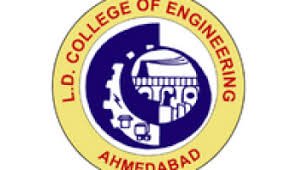M.Tech. in Rubber Technology offers global career prospects, innovation opportunities, competitive salaries, and sustainable impact.
Future Scope & Benefits: M.Tech. in Rubber Technology Course
Pursuing an M.Tech. in Rubber Technology can open doors to a dynamic and rewarding career in the rubber and polymer industry. Rubber, as a versatile material, plays a significant role in various sectors, including automotive, aerospace, healthcare, and manufacturing. In this comprehensive guide, we will explore the future scope and benefits of obtaining an M.Tech. in Rubber Technology.
1. Thriving Industry Demand:
The rubber industry continues to grow and evolve, driven by the demand for innovative rubber and polymer materials across various sectors. As industries seek more sustainable, high-performance materials, the need for rubber technologists with advanced knowledge and skills is on the rise. This sustained demand ensures a promising future for professionals in this field.
2. Diverse Career Opportunities:
Earning an M.Tech. in Rubber Technology opens doors to a wide range of career opportunities in both technical and managerial roles. Graduates can explore positions such as:
- Rubber Technologist: Developing and optimizing rubber compounds for specific applications.
- Quality Control Manager: Ensuring the quality and consistency of rubber products.
- Research and Development Scientist: Innovating new rubber materials and technologies.
- Product Design Engineer: Creating rubber components for various industries.
- Manufacturing Manager: Overseeing rubber production processes.
- Technical Sales and Marketing: Promoting rubber products to industries and consumers.
- Supply Chain Manager: Managing the logistics and distribution of rubber materials.
- Entrepreneur: Starting a rubber-related business or consultancy.
3. Global Opportunities:
The rubber industry is global in scope, offering opportunities to work on projects and collaborations worldwide. Many multinational companies operate in this sector, providing professionals with international exposure and career mobility.
4. High Demand for Specialized Expertise:
As the rubber industry becomes more specialized, professionals with advanced degrees in rubber technology are in high demand. Employers value the in-depth knowledge and practical skills that M.Tech. graduates bring to the table.
5. Competitive Salaries:
Professionals in the rubber and polymer industry typically enjoy competitive salaries, and those with advanced degrees often earn higher pay compared to those with bachelor's degrees.
6. Technological Advancements:
The field of rubber technology is not static; it continues to evolve with advancements in materials science and manufacturing processes. M.Tech. graduates are well-equipped to stay at the forefront of these technological developments.
7. Sustainable Innovation:
Sustainability is a growing concern across industries. Rubber technologists are at the forefront of developing eco-friendly rubber materials and recycling methods. Graduates can contribute to sustainability by developing greener rubber products and practices.
8. Research Opportunities:
M.Tech. programs often include a research component, allowing students to engage in cutting-edge research projects. This research can lead to publications, patents, and collaborations with industry partners.
9. Networking Opportunities:
During your M.Tech. program, you'll have the chance to network with industry professionals, faculty, and fellow students. These connections can lead to internships, job referrals, and collaborations on research projects.
10. Leadership Roles:
With an M.Tech. degree, you're well-prepared for leadership positions within the rubber and polymer industry. You can take on managerial roles that involve overseeing teams, projects, and budgets.
11. Entrepreneurial Ventures:
The knowledge and skills gained during an M.Tech. program can empower graduates to start their own rubber-related businesses or consultancies. Entrepreneurial ventures in this field can be financially rewarding and personally fulfilling.
12. Industry Resilience:
The rubber industry has demonstrated resilience during economic downturns and global challenges. Rubber products remain essential in various applications, making this field less susceptible to economic fluctuations.
13. Contribution to Innovation:
As a rubber technologist, you have the opportunity to contribute to product innovation and technological advancement. Your work may lead to the development of novel rubber materials with groundbreaking properties.
14. Shaping the Future of Mobility:
With the automotive industry's shift toward electric and autonomous vehicles, rubber plays a critical role in tire technology and other components. Rubber technologists can help shape the future of mobility.
15. Problem Solving and Creativity:
Working in rubber technology often involves solving complex problems and developing innovative solutions. This field challenges professionals to think creatively and analytically.
 2 Years
2 Years
 Post Graduate
Post Graduate
 Engineering
Engineering
 Full Time
Full Time





 back
back

